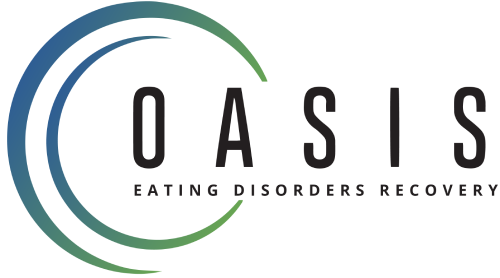At Oasis Eating Recovery, we provide expert ARFID treatment in California, helping individuals overcome food aversions, sensory sensitivities, and selective eating. Unlike disorders like anorexia nervosa, ARFID isn’t about body image but can lead to malnutrition and health risks. Our PHP and IOP programs in Fresno, CA, offer evidence-based care, including therapy, nutrition support, and family involvement, to help individuals regain confidence in eating. If you or a loved one needs help, we’re here to support your recovery.
Avoidant/Restrictive Food Intake Disorder (ARFID) is an eating disorder characterized by an extreme avoidance or restriction of food that leads to nutritional deficiencies, weight loss, and interference with daily life. Unlike anorexia nervosa or bulimia nervosa, ARFID is not driven by body image concerns but rather by sensory sensitivities, fear of choking or vomiting, or a lack of interest in eating. It is recognized in the DSM-5 and can affect both children and adults, often co-occurring with anxiety, OCD, autism, or ADHD. Without treatment, ARFID can lead to serious medical complications, making early intervention and structured treatment essential for recovery.
Avoidant/Restrictive Food Intake Disorder (ARFID) goes beyond typical picky eating and can lead to serious health complications if left untreated. Individuals with ARFID may experience extreme food avoidance, making it difficult to get the necessary nutrients for proper growth and overall well-being. While symptoms can vary, common signs include:
If you or a loved one is experiencing these symptoms, professional ARFID treatment is essential to prevent nutritional deficiencies, medical complications, and long-term health risks. At Oasis Eating Recovery, we offer specialized care to help individuals rebuild a healthy relationship with food and improve their overall well-being.
The length of treatment varies based on individual needs, severity, and progress. At Oasis Eating Recovery, we offer different levels of care, each with varying durations:

Avoidant/Restrictive Food Intake Disorder (ARFID) can be treated with a comprehensive, individualized approach that addresses both the psychological and nutritional aspects of the disorder. Since ARFID is not driven by body image concerns like anorexia nervosa or bulimia nervosa, treatment focuses on reducing food-related anxiety, expanding dietary variety, and restoring nutritional health.
Helps individuals identify and change negative thought patterns related to food avoidance and anxiety.
Gradual introduction to new foods and textures in a controlled, supportive environment to reduce fear and sensory sensitivities.
Guided by a registered dietitian, this approach focuses on restoring nutritional balance, addressing deficiencies, and promoting healthy food intake.
Involves caregivers in the recovery process to support mealtime structure and encourage gradual progress.
Monitoring for malnutrition, gastrointestinal issues, and co-occurring mental health conditions like OCD, anxiety, ADHD, or autism.
At Oasis Eating Recovery, we take a comprehensive, individualized approach to treating Avoidant/Restrictive Food Intake Disorder (ARFID). Our evidence-based treatment programs address the psychological, nutritional, and medical aspects of the disorder, helping individuals overcome food aversions, sensory sensitivities, and restrictive eating patterns. Through a multidisciplinary team of therapists, dietitians, and medical providers, we guide individuals toward a balanced relationship with food and long-term recovery.
ARFID affects both physical health and mental well-being, which is why our treatment approach includes therapists, dietitians, psychiatrists, and medical professionals working together to provide holistic, evidence-based care.
We utilize Cognitive Behavioral Therapy (CBT) and Dialectical Behavioral Therapy (DBT) to help individuals identify and change negative thoughts about food, reduce anxiety, and develop coping strategies for eating-related distress.
Our registered dietitians create personalized meal plans to restore nutritional health, address deficiencies, and encourage balanced eating. Through mealtime support and structured food exposures, we help individuals expand their food intake and tolerance.
Many individuals with ARFID have sensory sensitivities or fear-based aversions to specific foods. Gradual exposure therapy helps them feel safe and comfortable trying new foods, increasing dietary variety over time.
Support from loved ones is essential in ARFID recovery. We offer family therapy and psychoeducation to help caregivers support mealtime, navigate food challenges, and reinforce progress at home.
Since ARFID can lead to malnutrition, weight loss, and medical complications, our team provides regular health monitoring, supplementation if needed, and interventions to ensure physical recovery.
Each person’s experience with ARFID is unique, so we create customized treatment plans tailored to their specific challenges, co-occurring conditions (such as OCD, ADHD, or autism), and recovery goals.
Oasis Eating Recovery offers Partial Hospitalization (PHP) and Intensive Outpatient (IOP) programs, providing structured care while allowing individuals to gradually rebuild their relationship with food in a supportive setting.
At Oasis Eating Recovery, we are committed to helping individuals break free from restrictive eating patterns and regain confidence in eating. If you or a loved one is struggling with ARFID, our eating disorder programs in California are here to help.

At Oasis Eating Recovery, we understand the challenges of Avoidant/Restrictive Food Intake Disorder (ARFID) and are here to help you or your loved one regain confidence in eating. Our multidisciplinary team provides comprehensive, evidence-based care, including CBT, exposure therapy, nutrition counseling, and family support to address the root causes of ARFID. With personalized treatment plans, medical monitoring, and structured meal support, our PHP and IOP programs offer the specialized care needed for lasting recovery.
If you’re ready to take the first step toward a healthier, more balanced relationship with food, contact us today. Our expert team is here to support you every step of the way.

We know that asking for help takes courage. Getting in touch is the first step. We’re here for you, no matter what. Once submitted, our admissions team will be in touch within 24 hours.
Or call us directly to get started: (559) 245-6203
Connect with our admissions team over the phone for a confidential conversation to understand your needs and goals.
Together, we’ll determine the level of care that best supports your recovery journey.
We create a comprehensive treatment plan to ensure continued healing and support with group therapy, nutrition, body image groups, individual/family sessions.

All Rights Reserved © by Oasis Eating Recovery Center | Website Sitemap | Privacy Policy | Billing Policy

I will be back soon